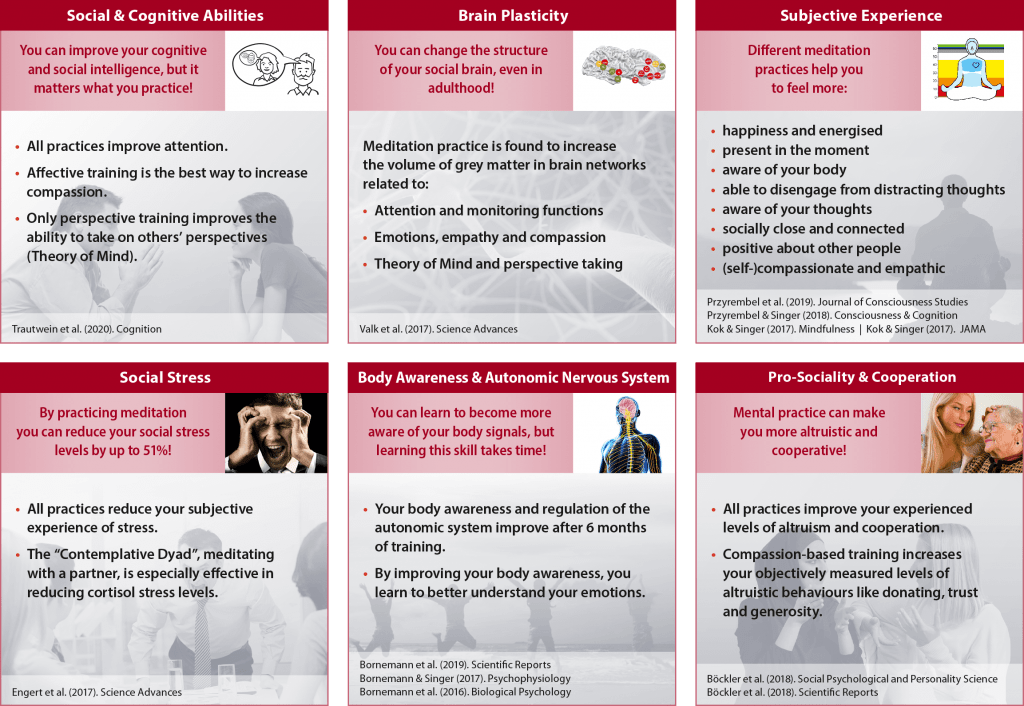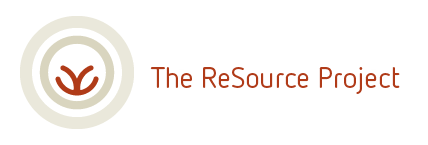
How to Train Your Mind and Heart
A Unique Long-Term Mental Training Study
The ReSource Project is so far one of the largest scientific studies on the mental trainability of qualities such as mindfulness, compassion, perspective-taking and pro-social behaviour. Tania initiated this multi-method and multi-disciplinary study in 2008, based on a grant from the European Research Council (ERC Grant) that she received while serving as a Professor in Zürich, Switzerland. The study was conducted during her time as Director at the Max Planck Institute for Cognitive Brain Research in Leipzig with more than 300 particpants (testing period from 2013 to 2016). Now, Tania continues to publish the results in peer-reviewed scientific journals in her role as scientific head of the Social Neuroscience Lab of the Max Planck Society in Berlin. Further, she is actively engaged in translating these science-based programs into different sectors of society.
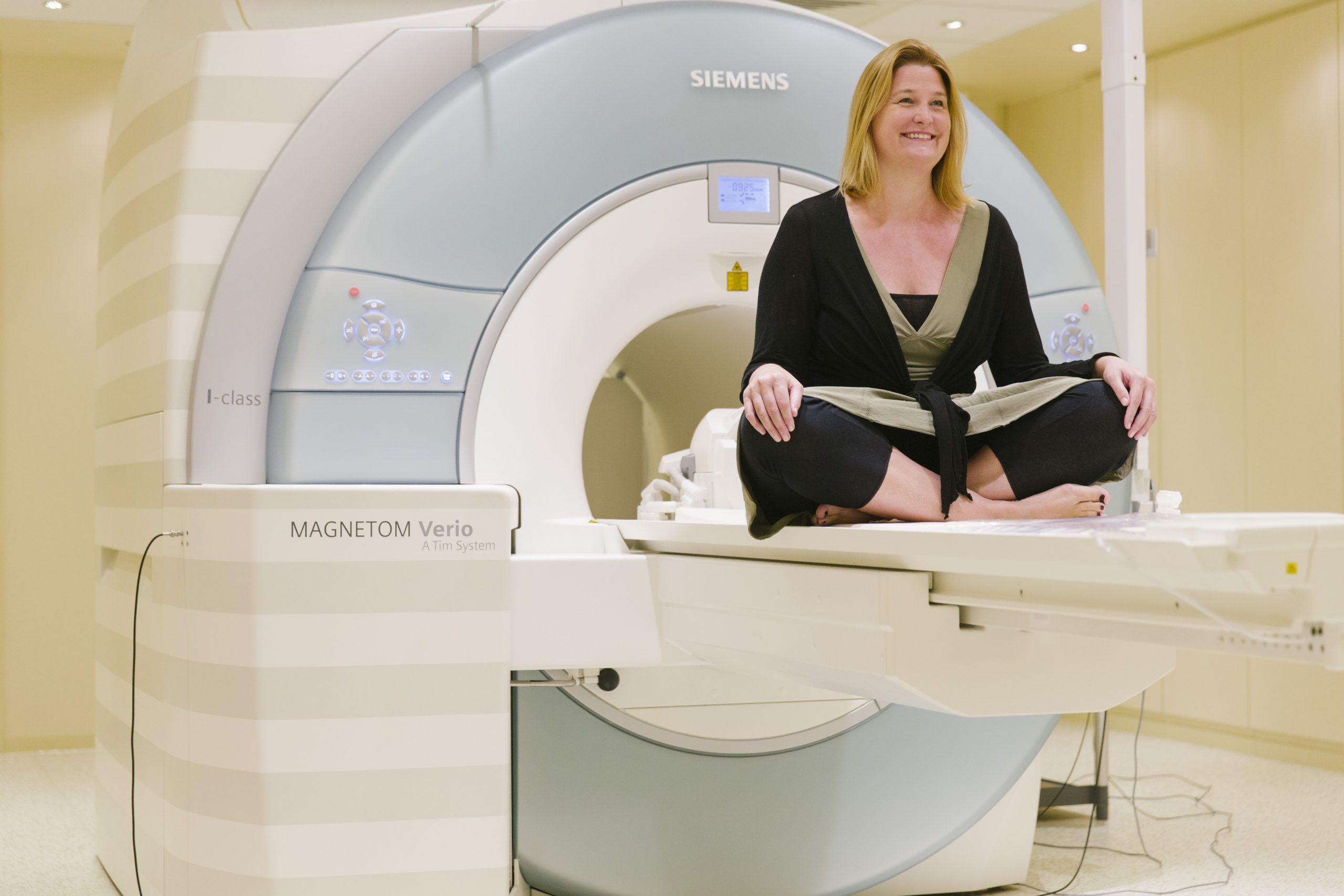
Keypoints
The ReSource Project in Brief
The principal goal of this large-scale 9-month training program is the multi-methodological scientific evaluation of the effects of different types of mental practices on mental and physical health, brain plasticity and pro-social behaviours. Before illustrating the underlying training model, the scientific measures, its history and the main scientific outcomes in more detail, here are some key bullet points about the ReSource project in brief:
- Timeline of the Project: from 2008 to the present
- Testing Period: 2013-2016.
- Publication Period: 2015 to the present
- Number of Participants: > 300 in 4 cohorts
- Duration of Training: 9 months
- Training Modules: 3 x 3-month Modules (Presence, Affect, Perspective)
- Skills Taught: Mindfulness & Attention, Social Intelligence, Compassion, Empathy, Emotion Regulation, Body Awareness, Coping with Stress, Cooperation and Altruism
- 90 different measures (brain, questionnaires, computer tasks, economic games, stress hormones, autonomic and immune markers)
- More than 40 published peer-reviewed scientific papers
- More than 200 press interviews, movies, podcasts and talks about the ReSource project

Why the ReSource Project?
Solving Current Global Problems
The name ReSource has two meanings: it refers to rediscovering one’s own source and it refers to building up resources for leading a more healthy and balanced life.
What are the primary goals and questions addressed by the 9-month longitudinal mental training study?
We live in an increasingly complex and globalised world struggling to deal with climate and health crises, resource depletion and social and economic inequalities. On a more individual level, we face increased stress-related diseases, depression and subjectively experienced loneliness, the latter despite the fact that we are more connected through the internet and social media than ever before.
Thus, there is a need to develop a wider lens and mental faculties that can position us human being securely in the new realities. Furthermore, relational and social competencies are becoming more and more important for success in our increasingly digitised and collaborative world.
How can social neuroscience help address these challenges and problems?
The following questions are central to the ReSource project:
Can we counteract the negative effects of a increasingly distracted mind by mental practices that stabilize the mind and our attention?
Can we train social competencies such as empathy and compassion through short-secularised mental practices?
Can we increase resilience and decrease social stress?
Can we teach people to feel more socially connected?
Can we improve altruism and cooperative skills?
Can we widen our circle of compassion to become truly global citizens?

What is being Practiced?
The ReSource Training Model
The ReSource training protocol is composed of three distinct 3-month modules (Presence, Perspective, Affect) that focus on cultivating different kinds of mental and emotional capacities, such as (1) interoceptive body awareness and attention (Presence), (2) gratitude, compassion, dealing with difficult emotions, and prosocial motivation (Affect), as well as (3) meta-cognitive skills and perspective-taking on oneself and others (Perspective).
Each module consists of two core mental practices, and participants are asked to practice these nearly every day for about 30 minutes in total with the help of a meditation app on their smartphones. The core exercises consist of classical meditation performed alone and so-called Contemplative Dyads, 10-minutes practices performed with a partner.
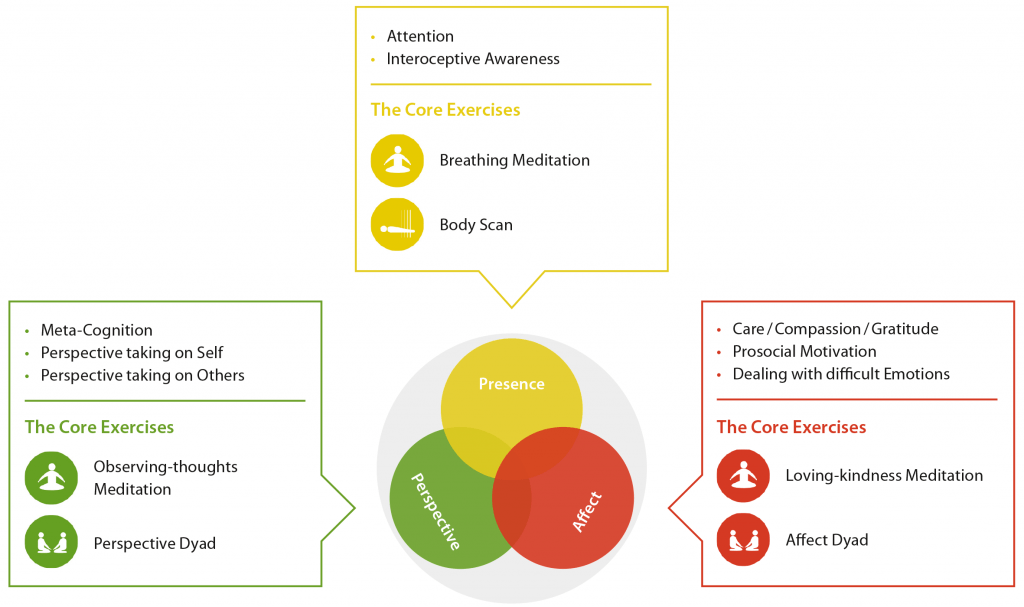

4 Cohorts of 80 Participants each
Timeline & Design of the ReSource Project
Through a highly conservative study design including 4 different cohorts, the project aimed at testing the differential and specific effects of these training modules on subjective and physical well-being, brain, body, and prosocial behaviour. The two 9-month training cohorts carried out the training modules in different orders, making it possible comparing the specific effects of each type of practice with each other. One cohort, the re-test cohort, did not do any training but was tested every 3 months in the same way as the training cohorts, enabling researchers to control for the effects of being tested several times in experimental tasks.
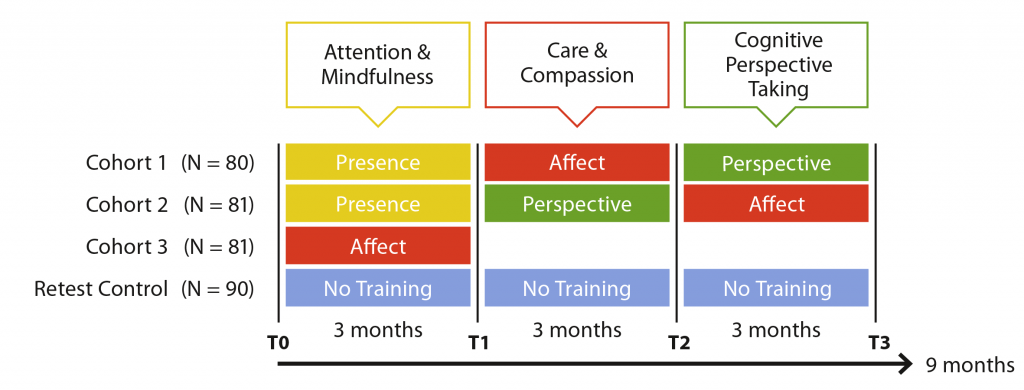

What is being Measured?
Scientific Assessment
Another unique feature of the ReSource project is its scientific multidisciplinary and multi-method nature. Instead of just focusing on measuring the training-related changes on one outcome measure, the project included 90 different measures covering many different aspects of human nature, from measures of subjective well-being, brain, autonomic nervous system, social cognition and emotions to bio, immune and hormonal markers as well as measures of cooperation and pro-social behaviours.
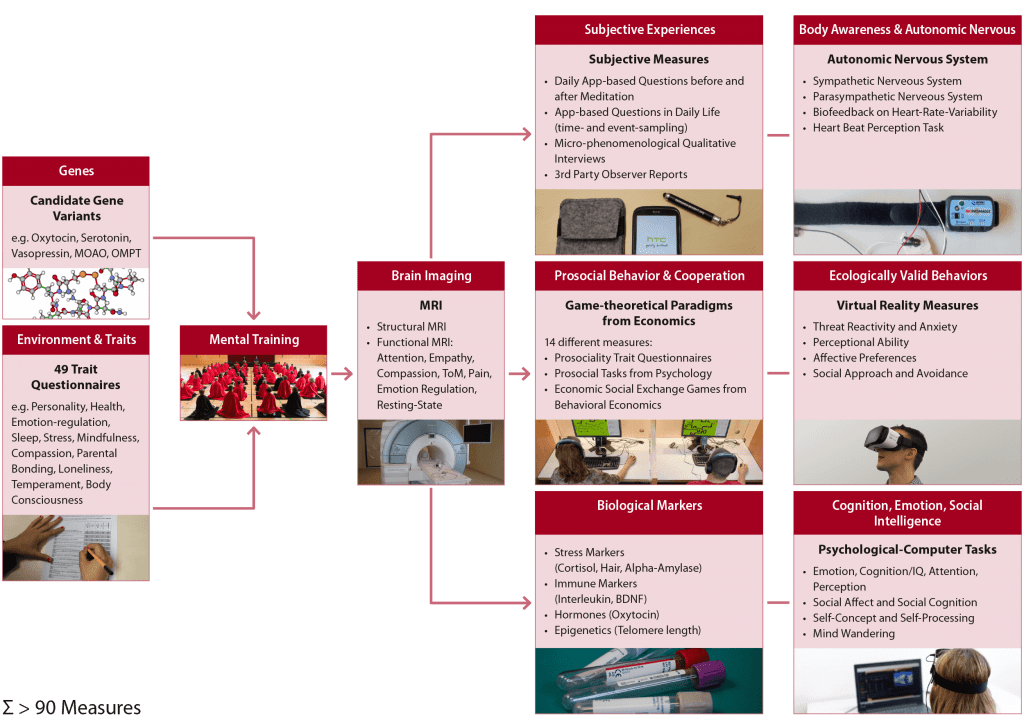

Behind the Scenery of Science
A Short History of the Resource Project
A large-scale study such as the ReSource project requires years of preparation, execution and then analysis and publication of the findings. In the following section, we summarise the timeline and major milestones of this project, from the year when Tania conceived it and received the ERC grant in 2008 while working as Professor in Zürich; her move to Leipzig in 2010 when she became Director of the Department of Social Neuroscience of the Max Planck Institute for Cognitive Brain Science and performed the study with more than 300 participants and a large team of scientists and support staff; through to the present day when she is still publishing the data in many peer-reviewed scientific journals in her role as scientific head of the Social Neuroscience Lab of the Max Planck Society in Berlin.
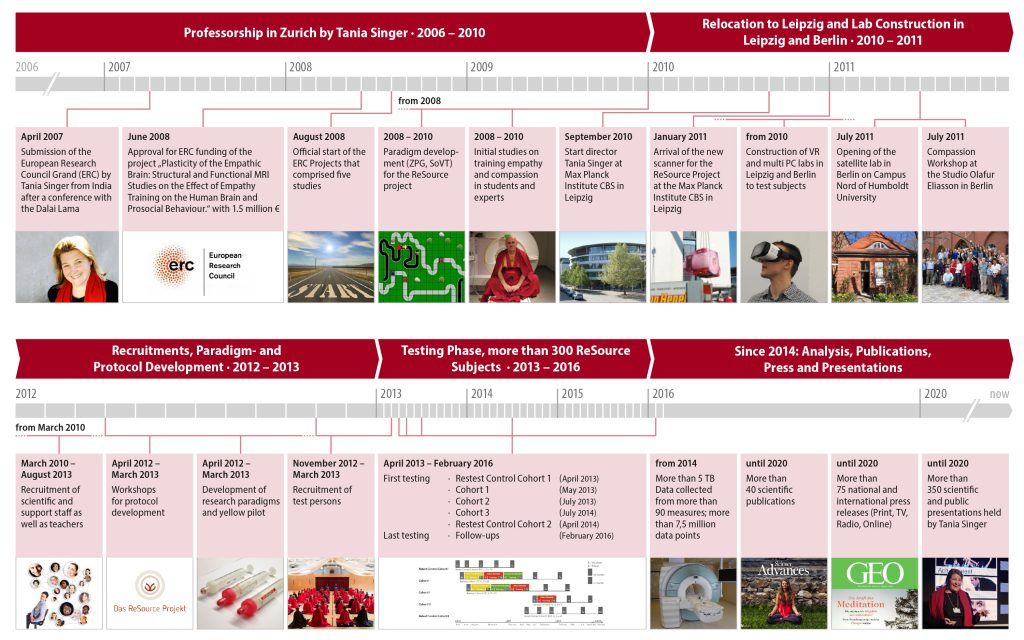
Key Findings
Results of the ReSource Project
Since 2014 when the first measurements of the trained participants came in, a large team of about 20 researchers started to process and analyse the diverse types of assessed data. So far, we have published the results in more than 40 peer-reviewed high-quality scientific journals.
Although the complexity of the findings makes it difficult to be summarise them in a few words, we attempt below to illustrate the major key findings so far.
A list of the original ReSource publications can be found here.

